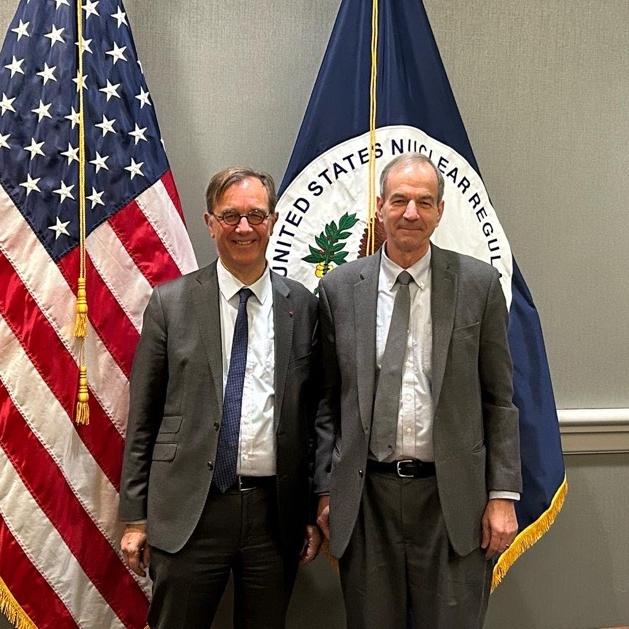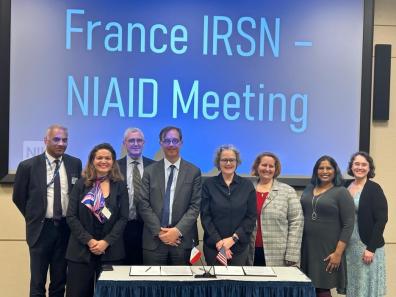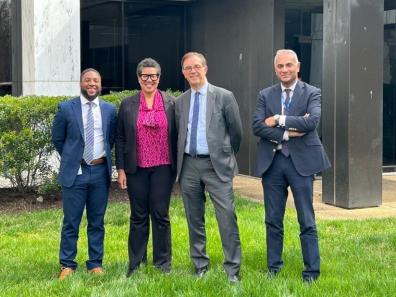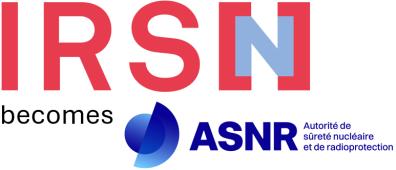Strengthening partnerships on the sidelines of the Regulatory Information Conference in Washington

Jean-Christophe Niel, IRSN Director General, and Ray Furstenau, NRC Executive Director of Operations.
Around the Regulatory Information Conference 2024 organized by the U.S. Nuclear Regulatory Commission (NRC), held in Washington from March 12 to 14, and attended by over 3,000 people and representatives from some 50 countries, the Director General held meetings with the Institute's key partners in nuclear safety, radiation protection and health research in the United States.
With the NRC, exchanges on issues relating to safety passive systems (IRSN's PASTIS program), material degradation and the development of thermal-hydraulic and severe accident calculation codes, have consolidated our already long-standing safety research cooperation, which started 50 years ago. The NRC also expressed the wish to strengthen its coordination with the Institute in the field of emergency preparedness and response, particularly in view of the hazards threatening Ukrainian nuclear facilities. Furthermore, the rapidly developing field of Artificial Intelligence, both for use by operators and for expert appraisal, gave rise to a progress report (IRSN, NRC and the German GRS) and a workshop under the aegis of the IAEA.
With the Department of Energy (DOE), the principle of enhanced collaboration on experimentation relating to fuel safety in the TREAT reactor was endorsed, as well as on safety criticality experiments at the Nevada National Security Site test center, in addition to the research IRSN and NNSA are already carrying out together as part of the NCSP (National Criticality Safety Program).
IRSN close cooperation with the National Nuclear Security Administration (DOE/NNSA) on emergency preparedness and response has also been confirmed and major areas for progress have been defined.
Finally, in the field of health, the Director of the NIH/NIAID (National Institutes of Health / Allergy and Infectious Diseases) and the Director General have agreed to increase interactions between the two institutes in the field of research to improve medical response to radiological and nuclear emergencies, including those caused by malicious acts (emergency dosimetry, diagnostics and medical countermeasures).
The convergence of views and joint projects with the NRC, as well as with the DOE and NNSA, are key elements of IRSN international research and emergency response partnerships, and has been further strengthened by these discussions.


